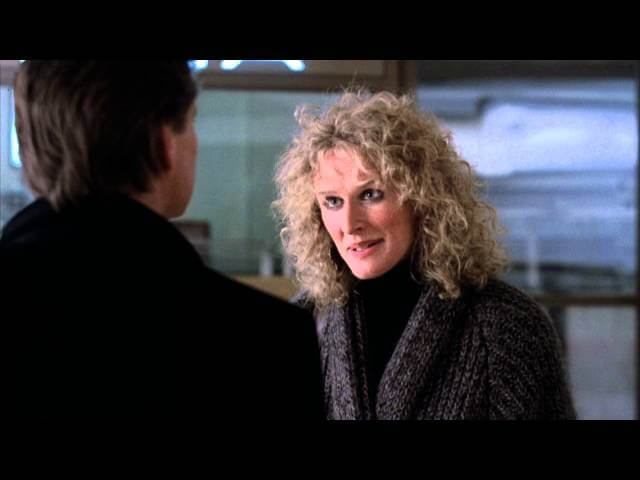Before Silence Of The Lambs, a trashy adultery thriller almost won Best Picture

One week a month, Watch This offers movie recommendations inspired by new releases or premieres. This week: With the Academy Awards a few days away, we look back at some of the unlikeliest Oscar nominees, picking a different major category every day.
Fatal Attraction (1987)
Silence Of The Lambs’ 1992 win for Best Picture (part of the last clean sweep of all five major categories by an Oscar winner) is often cited as the ultimate cinematic convergence of highbrow and lowbrow, a horror film about a sadistic serial killer who also possesses an upscale pedigree and is filmed with impeccable style. But trashy material dressed up in high-class studio filmmaking made it to the Best Picture table a few years prior, in a film that made arguably an even bigger cultural splash at the time, even if Lambs has emerged as the more enduring achievement in hindsight. Fatal Attraction took the pulpiest of stories—a torrid and tempestuous affair leads to a crazed woman trying to murder her lover and his family—and gave it the glossy Hollywood treatment.
In 1987, the film was a lightning rod of must-see controversy. The narrative is simplicity itself. Dan (Michael Douglas) has an affair with high-powered business woman Alex (Glenn Close), in what’s understood to be a no-strings-attached tryst. However, as Dan returns to his normal life with wife Beth (Anne Archer) and his daughter, Alex starts harassing him at work, calling day and night, eventually saying she’s pregnant and demanding he leave his wife.
While it sounds interchangeable to hundreds of other salacious genre exercises, the caliber of actors and behind-the-scenes talent lent a respectable air to the proceedings, and it became a blockbuster, the second-highest grossing U.S. film of the year and the top-grossing movie internationally. Time magazine ran a cover story, as did dozens of other periodicals, and the plot became a point of mass-media conversation. Some saw an AIDS metaphor, while others (fairly, in retrospect) condemned its retrograde view of women as either bitchy single career women or supportive homemakers. The question of whether Dan reaped what he sowed was debated, as was the role of cinema in reinforcing stereotypes. (The discovery that the ending was reshot to make Alex a crazed killer, rather than a suicide case, based on test audiences’ desire for a standard hero/villain scenario, seems to bear this theory out.) Hell, “bunny boiler”—a reference to Close’s Alex, who at one point kills the family pet and boils it on the stove—even made it into the Oxford English Dictionary. The film touched a nerve.
It’s easy to enjoy Fatal Attraction on a purely visceral level. Adrian Lyne went on to an entire career of lining salacious thrillers (and the odd horror film, in the case of Jacob’s Ladder) with artistic window dressing. The entire film is suffused with an air of dread, and excellent performances all around lend credibility to the increasingly unhinged behavior and outlandish situations. And while Close was understandably unhappy about the reshot ending, as it definitely removes much of the depth and ambiguity from the story—rendering it more sexist and less complex—it’s actually a more honest and fitting conclusion for what Fatal Attraction really is: a gleefully pulpy exercise playacting as a prestige picture.
Availability: Fatal Attraction is available on Blu-ray and DVD and Blu-ray from Netflix or possibly your local video store/library. It can also be rented or purchased from the major streaming outlets.